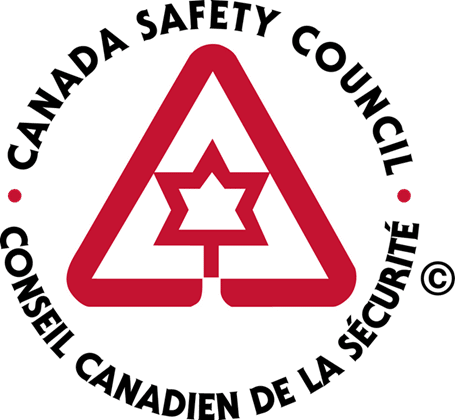Training Makes Communities Safer
Jack Smith, president of the Canada Safety Council, urges communities across Canada to make safety courses an integral part of their programming.
“Training, whether it’s for firearms, driving, babysitting, or sports, is a very effective way to address safety issues,” Smith says.
Even when the logistics seem daunting, communities can find ways to implement highly successful training programs. Take, for example, the Red Sky Métis Independent Nation (RSMIN) in Thunder Bay, Ontario.
In 1999, the late Métis Chief Roy DeLaRonde successfully conducted information workshops in Thunder Bay on firearms legislation for Aboriginal Peoples, Aboriginal organizations and the general public with funding from the Canada Firearms Centre (now the RCMP Canadian Firearms Program), which at the time was under the federal justice department.
The Métis Chief knew that in the past, families would pass firearms to their children like other tools, along with advice about safety. But just as the laws were changing, so were firearms. Newer, more sophisticated and powerful firearms indicated a need for proper, modern and in-depth safety instruction. He decided to have someone trained to provide a firearms safety course, and in particular, the Canadian Firearms Safety Course.
The Métis Chief saw the need, not only for his community members, but for other remote communities as well. They needed to have access to training and licensing services that would ensure their residents handled firearms safely and were able to comply with the new Firearms Act. To accomplish this, he initiated the Red Sky Métis Firearm Training Centre.
“Safe storage was, and still is, a big issue in firearms safety,” explains George Gallinger, a firearms safety instructor for RSMIN. “One man taking the course had inherited some firearms and was keeping them in a closet. After the first day of training he went home and checked the guns. He had assumed they were not loaded but, to his horror, they all had ammunition in them – and he had grandkids in the house.”
“Always assume every firearm is loaded,” Gallinger says. “The course teaches this. It applies to how firearms are stored as well as how they’re handled; the muzzle must always be pointed in a safe direction. Another important message is to use the right ammunition. Firing a gun that has the wrong ammunition can lead to serious injury.”
It would be an understatement to say Gallinger is dedicated. He travels thousands of kilometres every year to provide training in communities only accessible by plane – or, in a few cases, by winter roads.
As more and more communities have had training, safe storage and handling practices have become the norm.
“The more training, the less accidents. The course teaches people what to do and what not to do,” Gallinger says.
In addition to firearms safety training, the Red Sky Métis Firearm Training Centre offers services such as assisting individuals with filling out applications for their firearms licence or renewal, taking photos to attach to their applications and verifying or transferring firearms. It has a very wide clientele; First Nations, Métis and non-aboriginals in urban, rural and remote areas of Northern Ontario.
In the past ten years, the Red Sky Métis Firearms Training Centre, under the guidance of the RCMP’s Canadian Firearms Program and the Chief Firearms Office of Ontario, has become a trusted resource for firearms safety. It is able to assist firearm owners and users of firearms in getting information and answering their questions directly or by giving them phone numbers of different departments to call, keeping in mind at all times the confidentiality of individuals they assist.
The program’s popularity attests to its effectiveness. Over the past decade, Red Sky has trained and certified over 5,500 Aboriginal people. An additional 145,000 have benefited by receiving other related services from the Training Centre.
When it comes to safety, nothing replaces training. Anyone who uses a gun should take the Canadian Firearms Safety Course. For more information, contact the Chief Firearms Officer in your province or territory.
Newfoundland: 1 800 731-4000 (ext. 5013) or
Training Coordinator 1-709-637-2020
P.E.I: 1 800 731-4000 (ext. 5502)
Nova Scotia: 1 800 731-4000 (ext. 6505)
New Brunswick: 1 800 731-4000 (ext. 6000)
Québec: Info-sécure 1 888 523-2863
Ontario: 1 800 731-4000 (ext. 7503) or F.S.E.S.O. (ext. 7542)
Manitoba: 1 800 731-4000 (ext. 8004)
Saskatchewan: 1 800 731-4000 (ext. 8502)
Alberta: Alberta Hunter Education Instructors’ Association
1 866 852-4342 or (403) 252-8474
British Columbia: 1 800 731-4000 (ext. 9530)
NWT: 1 800 731-4000 (ext. 9026)
Yukon: 1 800 731-4000 (ext. 9530)
Nunavut: 1 800 731-4000 (ext. 8004)
-30-
For more information, please contact:
Jack Smith
President, Canada Safety Council
(613) 739-1535 (ext. 225)
Catherine Benesch
Communications/Media Program Coordinator, Canada Safety Council
(613) 739-1535 (ext. 228)
